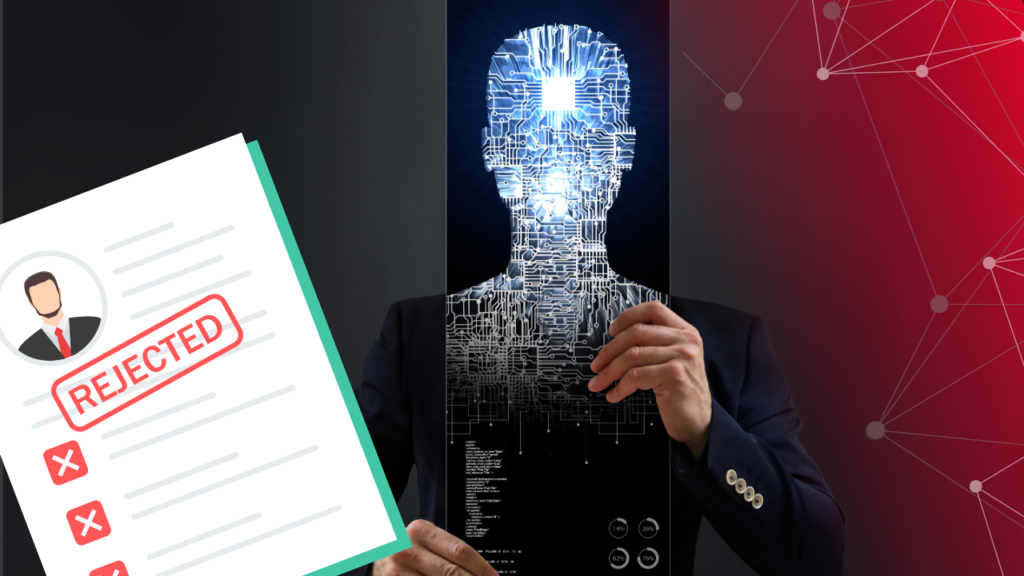Will AI take our jobs? Are the following years the ones that will make humanity stop working? Or is it just a hype? These are powerful questions that will guide us to make better and long-term career changes.
A Historical Approach to Technology and the Job Market
We’re going take a empirical approach by looking at the history of technology and job market. The reason why we chose to look at history is simply because we’ve seen so many opinionated views on the future of AI, and they all lack the foundation reasoning.
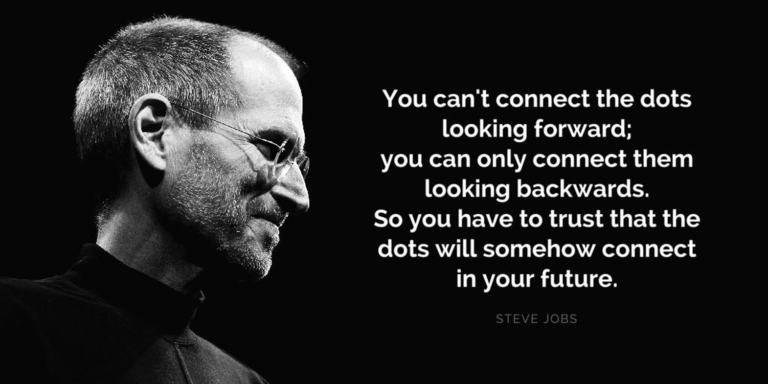
Unemployment and Innovation: Debunking Myths
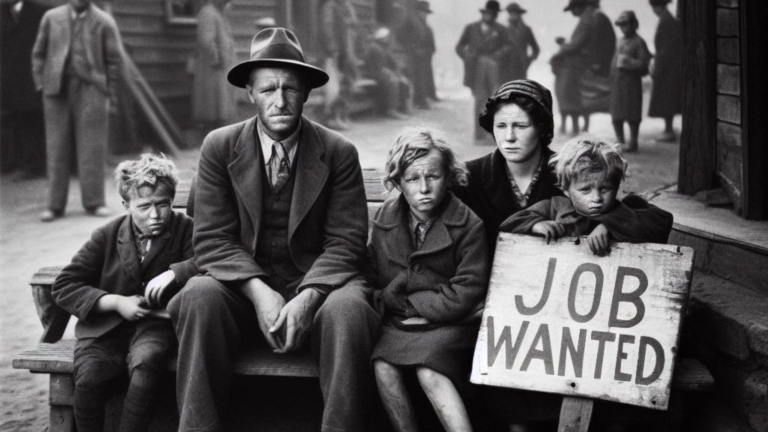
So, financial system 1, innovation 0.
Recessions, Not Innovation, Drive Unemployment
Here we have the chart of unemployment rate and I’ve plotted some of the major innovation periods. We have: the invention of transistors, invention of microprocessors, launch of the internet, , launch of the world wide web, iPhone, CRISPR gene editing technology and the advancements of AI like ChatGPT.
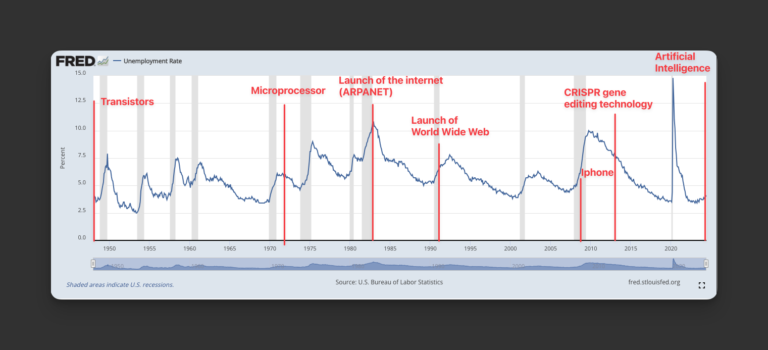
As you can see, there is no direct correlation with unemployment and innovation. However, if we were to look at the recessions, the graph looks like this
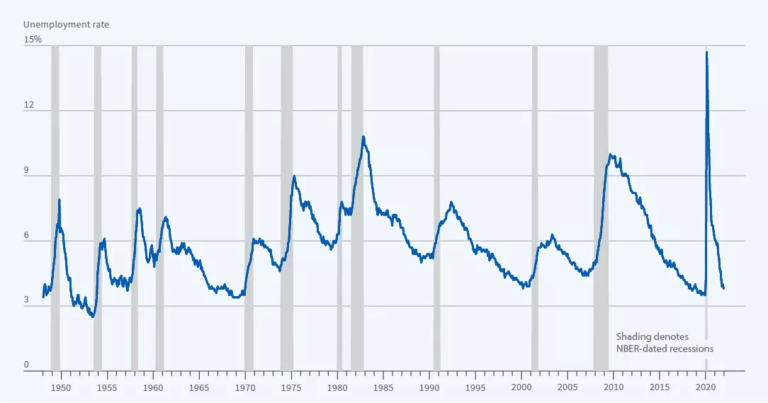
“Most work in the U.S. is new work”
MIT economist David Autor
Most contemporary jobs require expertise that didn’t exist back then in 1940s, and was not relevant at that time.
The Future of Work: AI's Impact on Jobs
- There will be new jobs because of AI
- There will be new ways of doing things because of AI
- There will be people left behind because of AI
A Tale of Two Workplaces: Past and Present
Conclusion: Adapting to AI for Future Competitiveness
To conclude, we believe that AI is similar with other past innovations, and they didn’t disrupt the unemployment rate. So AI won’t take our jobs, but it’s our duty to learn to use it so that we remain competitive on the job market.

